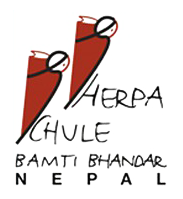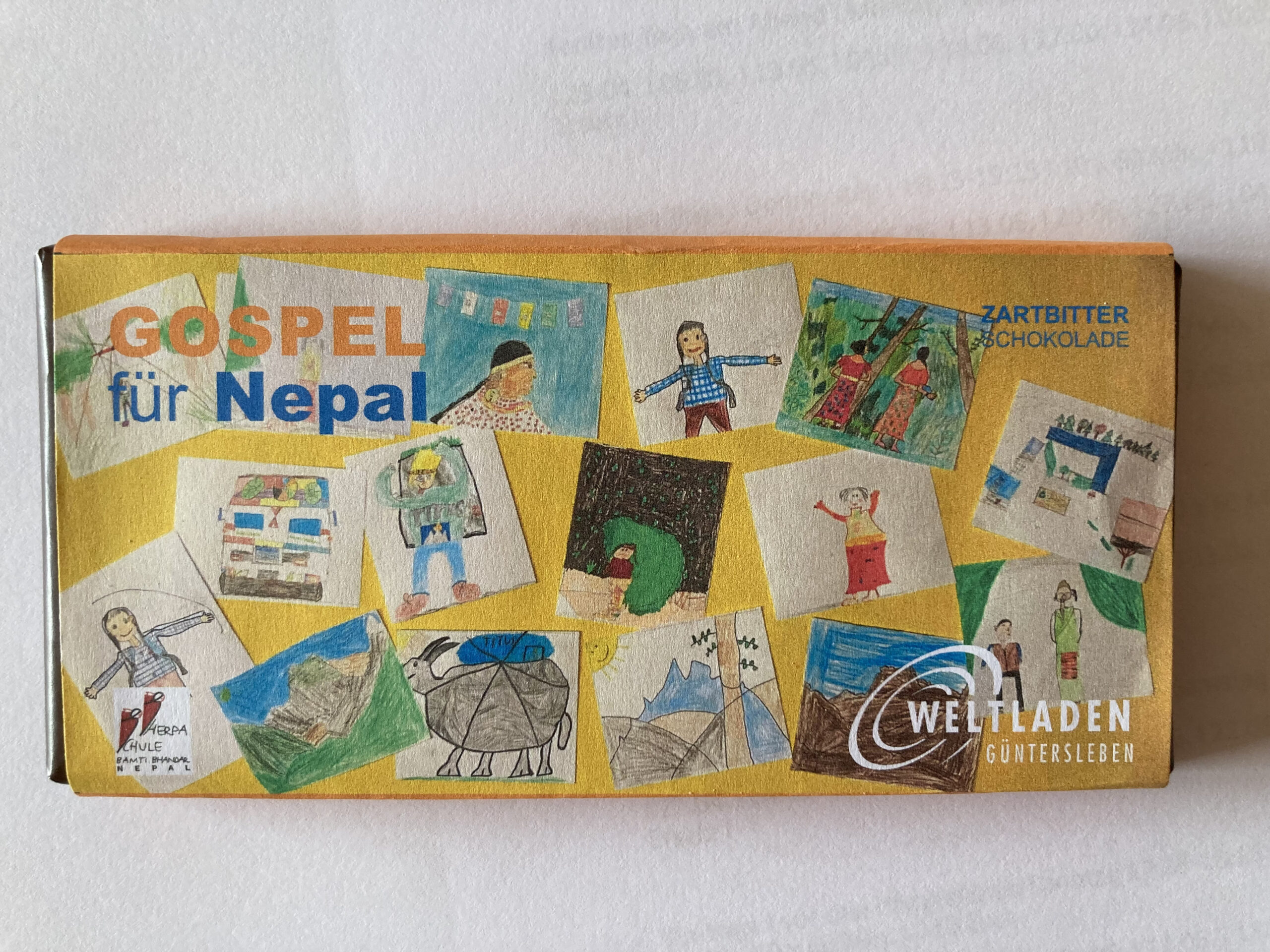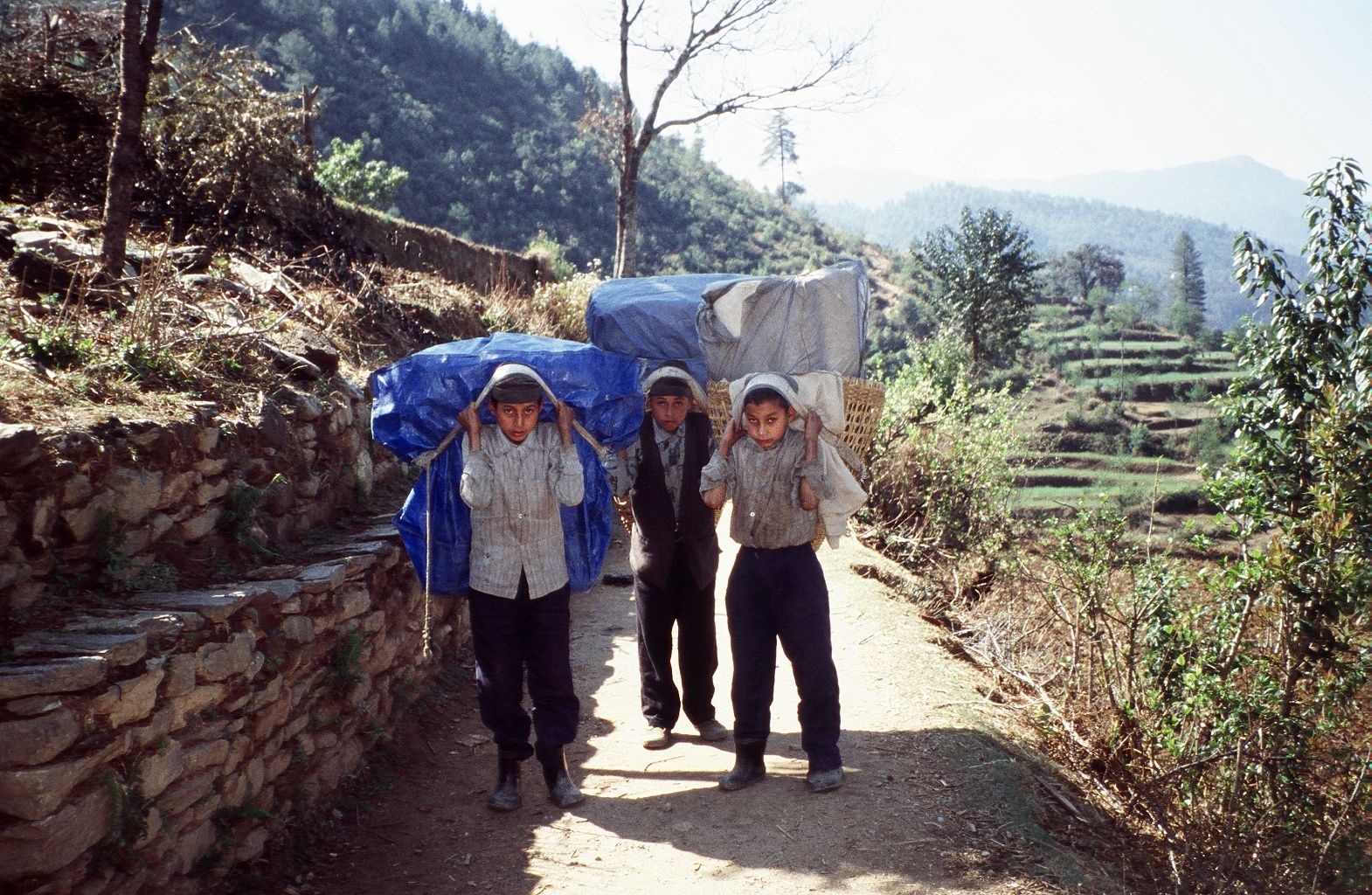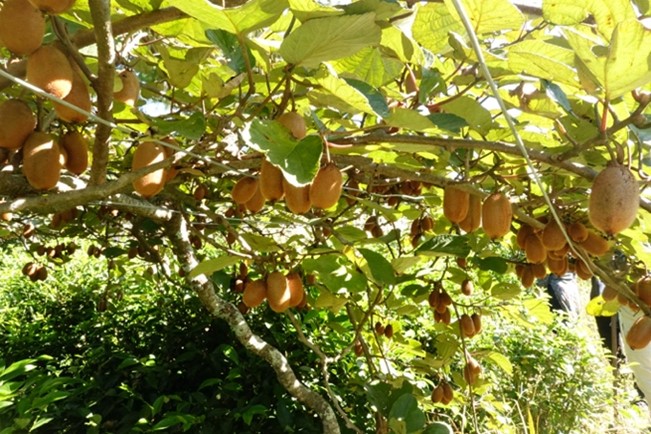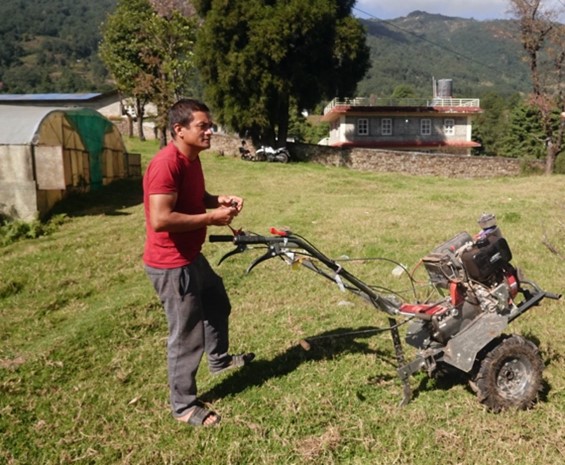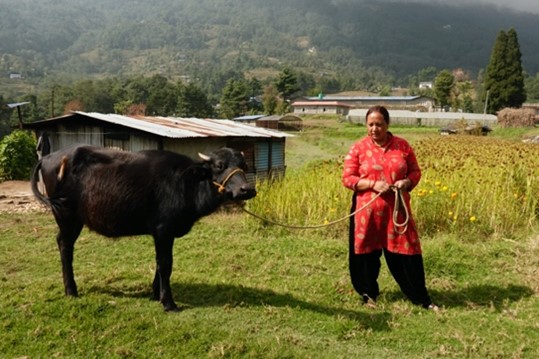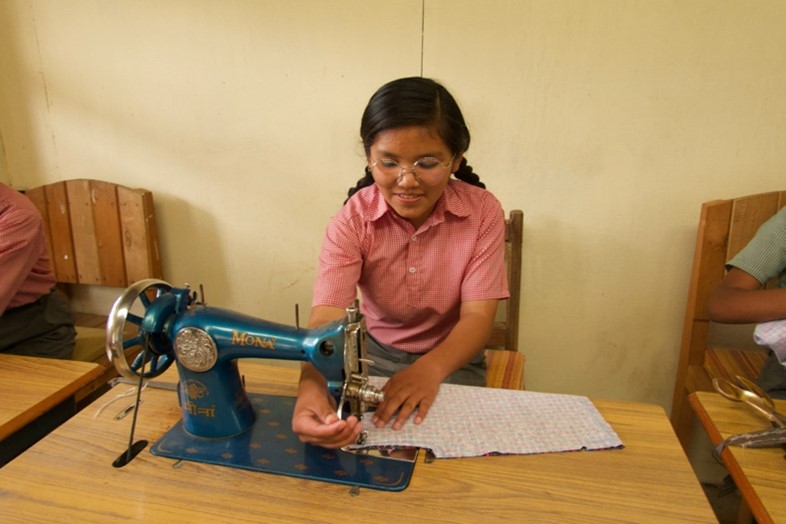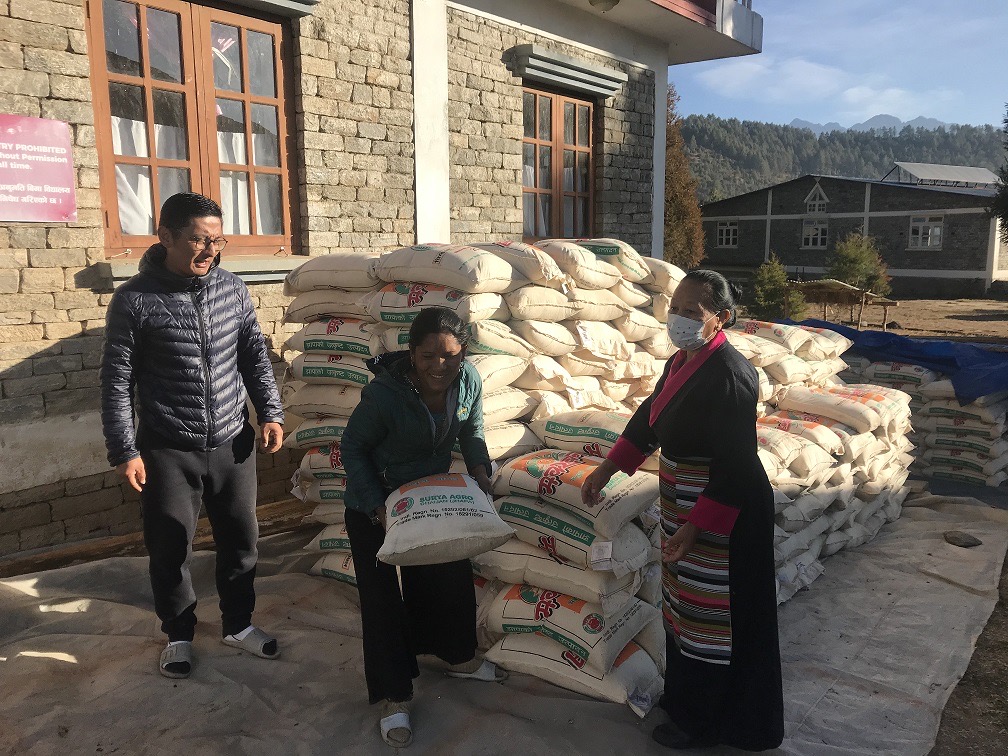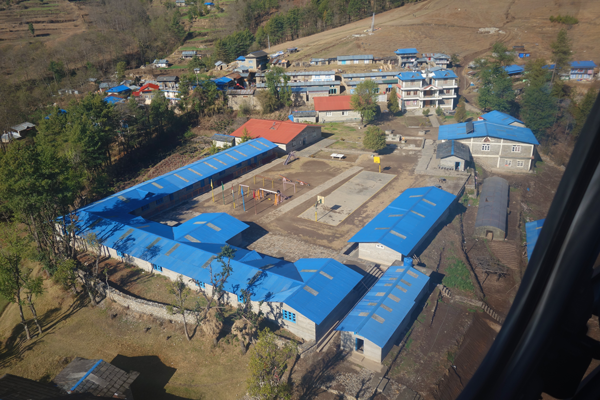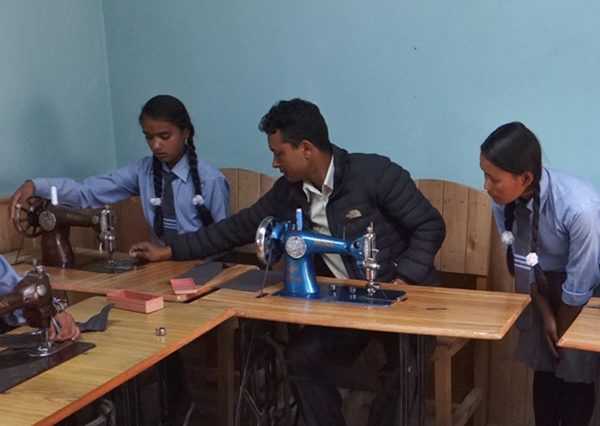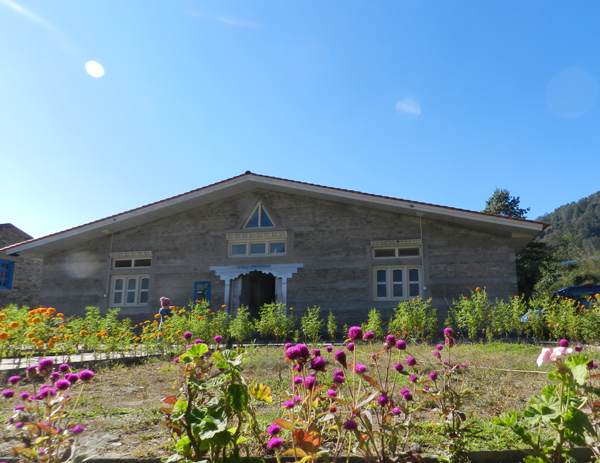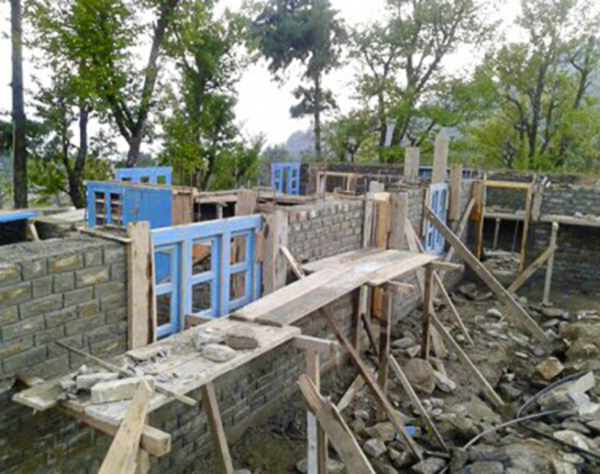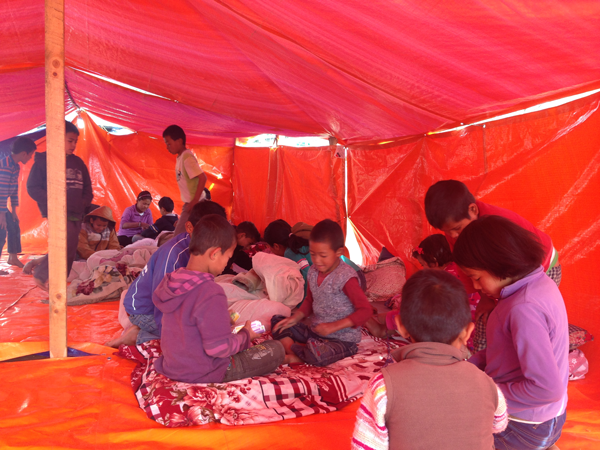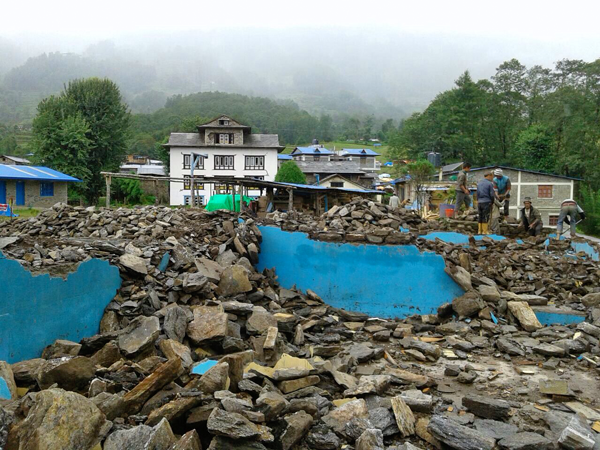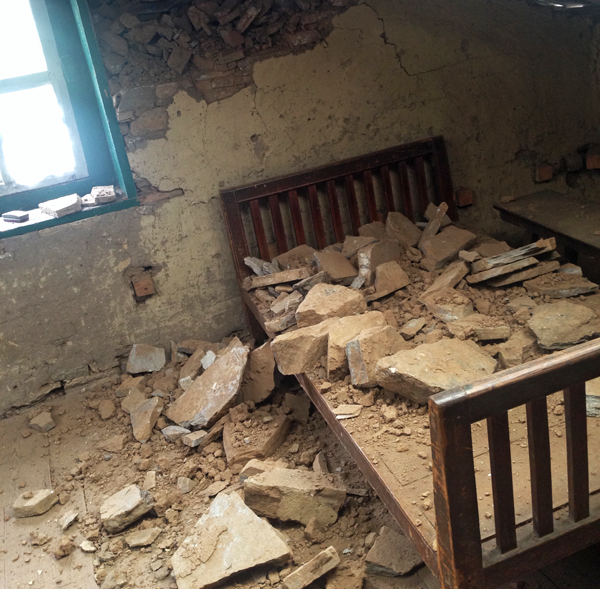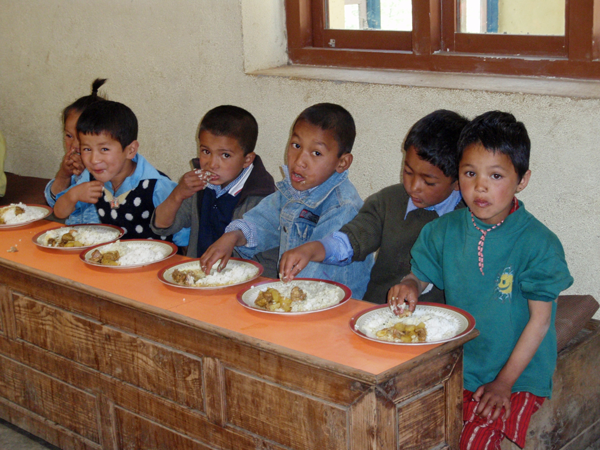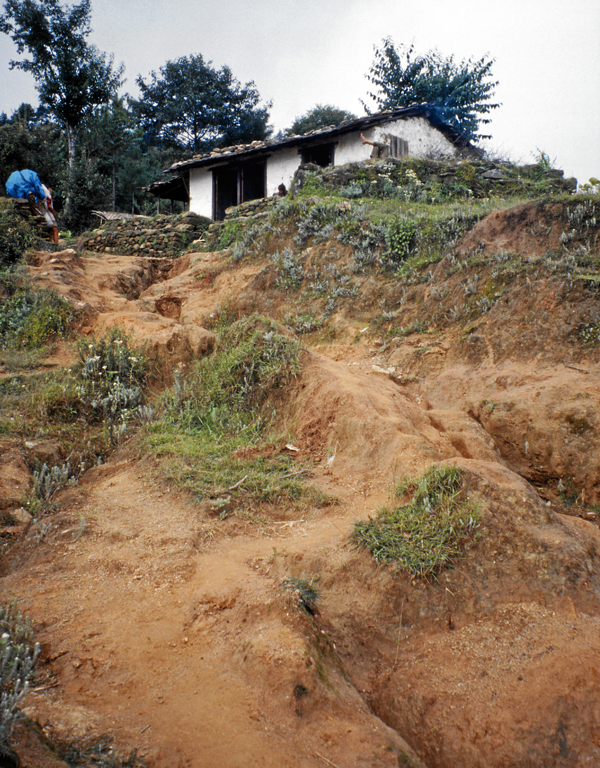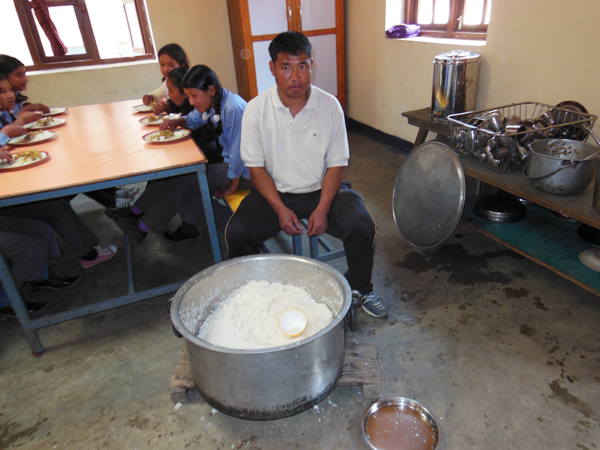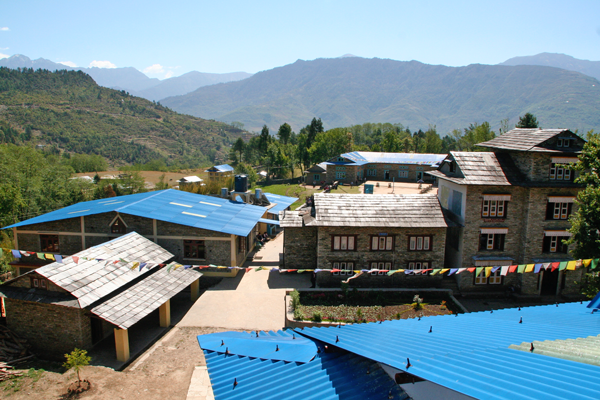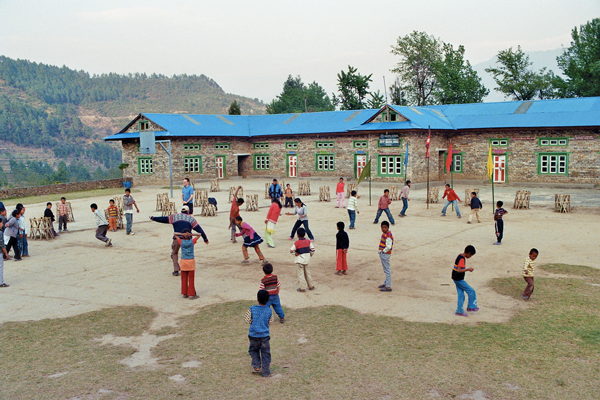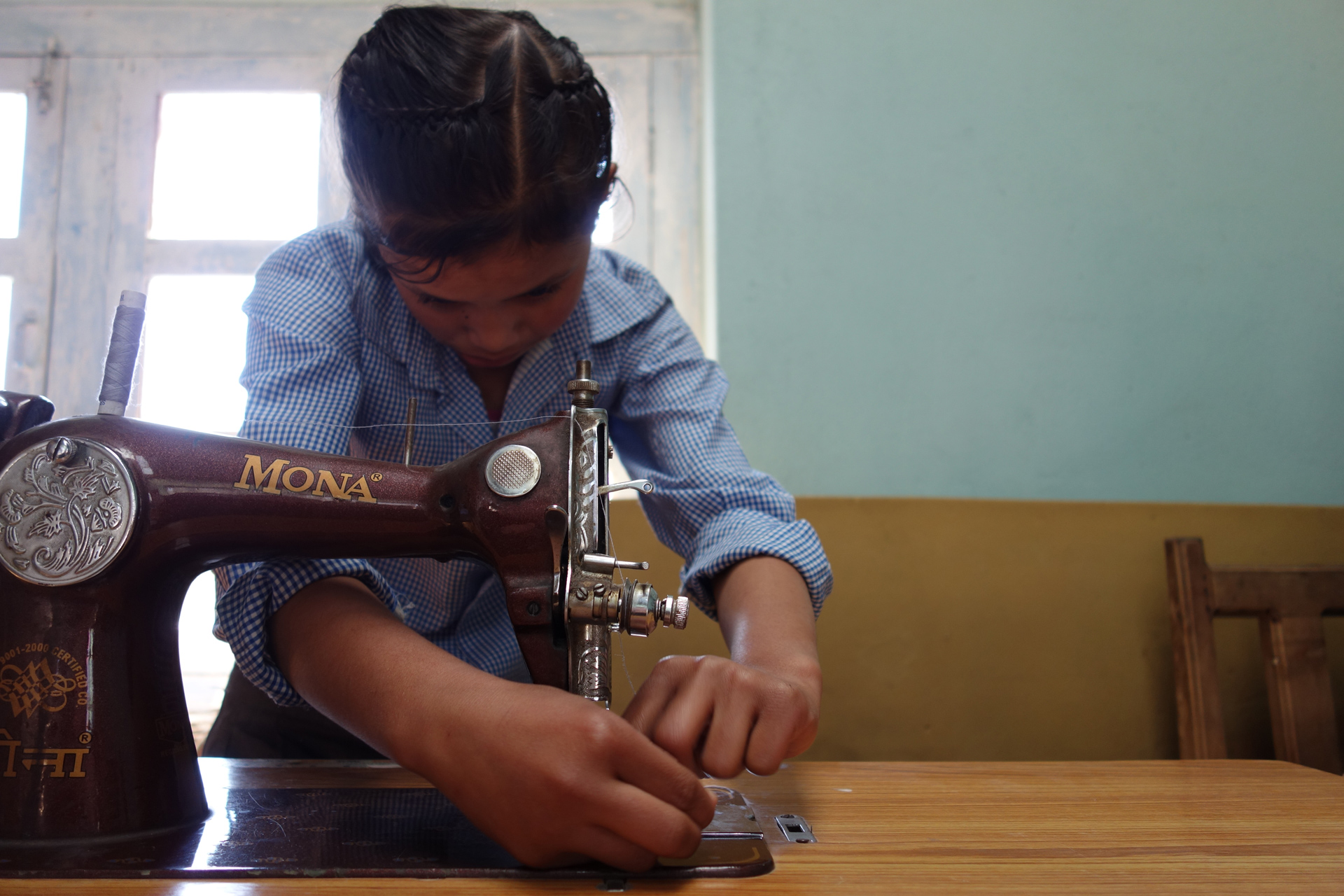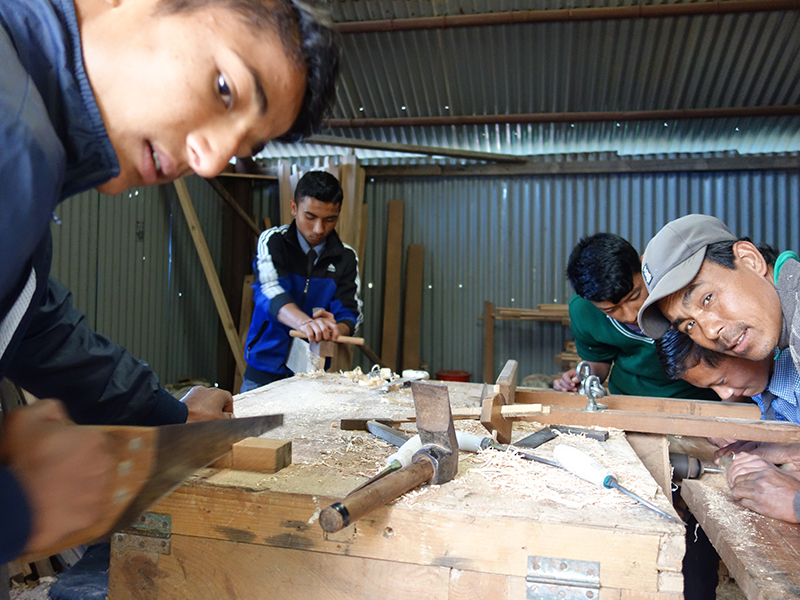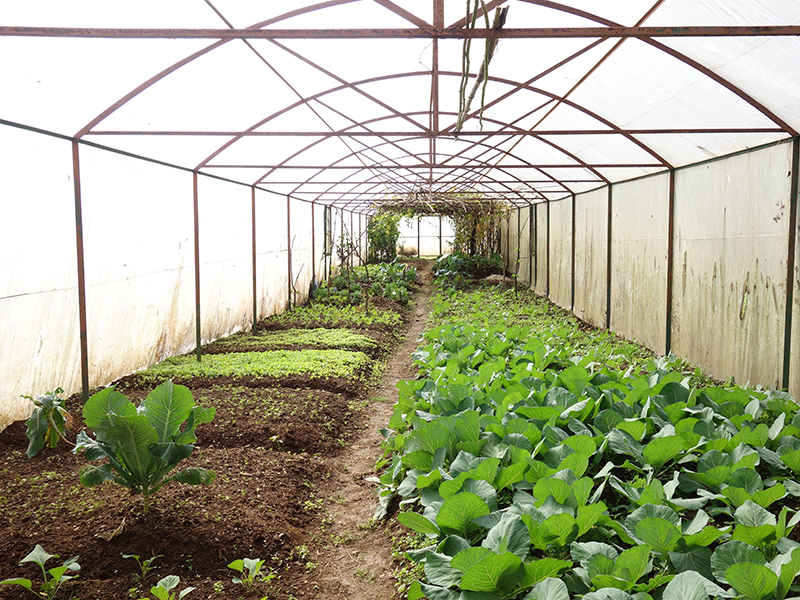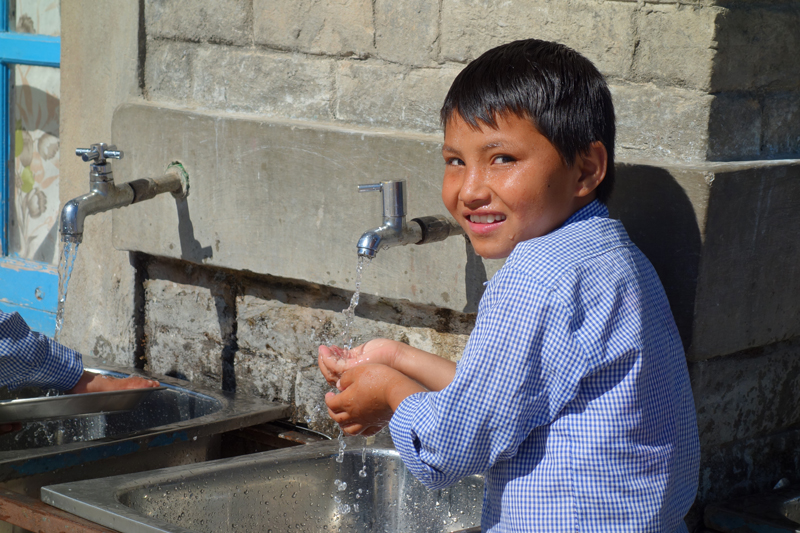Der Klimawandel ist in Nepal deutlich zu erfahren. Die Regenzeiten werden immer heftiger und dauern länger an. Noch Ende September regnete es heftig und die Wege waren nur sehr mühsam zu befahren. Wir brauchten 2 Tage, um ins Projekt zu kommen. Immer wieder haben abgegangene Muren uns gezwungen, Umwege zu finden.
Von der Schule hatten wir einen guten Eindruck. Die Kleinen (Nursery, Lower Kindergarden , Upper Kindergarden und Klasse 1) arbeiten als Team zusammen und Klasse 2 bis Klasse 7 sind ein weiteres Team. Diese Gliederung führt zu guten gegenseitigen Inspirationen unter den Lehrern und zu lebendigerem Unterricht.
Unsere ehemalige Schülerin Shova hat ihre dreijährige Ausbildung als Krankenschwester abgeschlossen und führt jetzt unsere Erste-Hilfe-Station. Außerdem unterrichtet sie in der Schule das Fach Hygiene,
das in Nepal zum Lehrplan gehört. Sie ist bei den Kindern sehr beliebt und für uns eine große Hilfe.
Unsere Werkstätten (Näherei und Schreinerei) werden von unseren Mädchen und Jungen der 6. und 7. Klasse besucht. Für den Schneider gab es eine elektrische Nähmaschine, da er auch die ganzen Schuluniformen anfertigt. Unsere Schreinerei soll mit einem Holzboden und Schränken für das Werkzeug ausgestattet werden. Diese werden vor Ort angefertigt.
